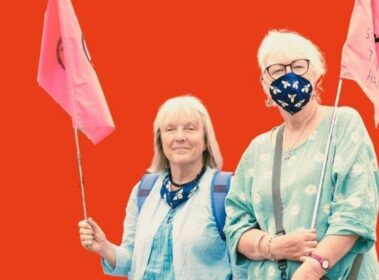
AGE contributed to the mid-term review of the implementation of the EU 2020-2025 LGBTIQ strategy. This consultation aimed to assess how the situation of LGBTIQ people has evolved, the progress made and which areas require more focus to fully implement the strategy by 2025.
In our response we highlighted that older LGBTI+ people run the risk of facing the accumulated effects of stigmas and discrimination experienced throughout their lives based on their actual or perceived age (ageism), actual or perceived sexual orientation (homophobia, lesbophobia, biphobia), gender identity or gender expression (transphobia), or sex characteristics (interphobia) . Yet, these intersecting and lifelong inequalities remain widely unknown and unaddressed.
Some of the key challenges facing older LGBTI have not yet been adequately reflected in EU policy. These include:
- Lack of legal and social recognition of same-sex relationships or one’s legal gender that leads to socioeconomic exclusion and social protection.
- Financial insecurity.
- Social isolation, exclusion, and invisibility.
- Inadequate, discriminatory and stigmatising healthcare services. -Lack of access to education and information on sexual health that is mainly targeting younger people.
- Discrimination in long-term care facilities, from residents, staff and institutional structures.
- Exposure to violence and abuse
To fully implement the EU Strategy there is a need to:
- Collect, use, and analyse data disaggregated by age, sexual orientation, gender identity, gender expression and sex characteristics. This data should be disaggregated by different age sub-groups to reflect the diversity of older LGBTI persons.
- Future studies that include research on older LGBTI people should reach out to a variety of older populations, including those that live in care settings (so often harder to reach) and those who are digitally excluded.
- Recall that older LGBTI persons are not a homogeneous group but a very diverse group, facing different forms of discrimination. –
- Address the multiple and intersecting forms of discrimination that older LGBTI people face
- Assess with Member States how to ensure equitable access for LGBTI people to pensions without discrimination.
- Exchange good practices regarding social inclusion of older LGBTI people in care homes.
- Ensure that transition-related healthcare is covered by health insurance, including for those in assisted living facilities.
- Expressly mandate equality bodies to investigate multiple discrimination and matters affecting older LGBTI people and make sure that older people are able to report abuses or discriminatory practices easily through publicised mechanisms and are informed of their rights.
- Assess the needed legislative changes to allow for succession rights and joint tenancies to be available for all couples and provide specific information and support to older LGBTI people on possibilities of passing their benefits, assets and inheritance to their surviving partner.
- Make sure that support services available to older people are inclusive and respectful of all, including LGBTI people.
An Age Equality Strategy will work together with the existing LBTIQ strategy to render more visible and provide better solutions to the intersectional challenges faced by older LGBTI.
AGE’s response is based on our ongoing work with ILGA Europe and EL*C to increase visibility of the challenges faced by older LGBTI.
Contact







